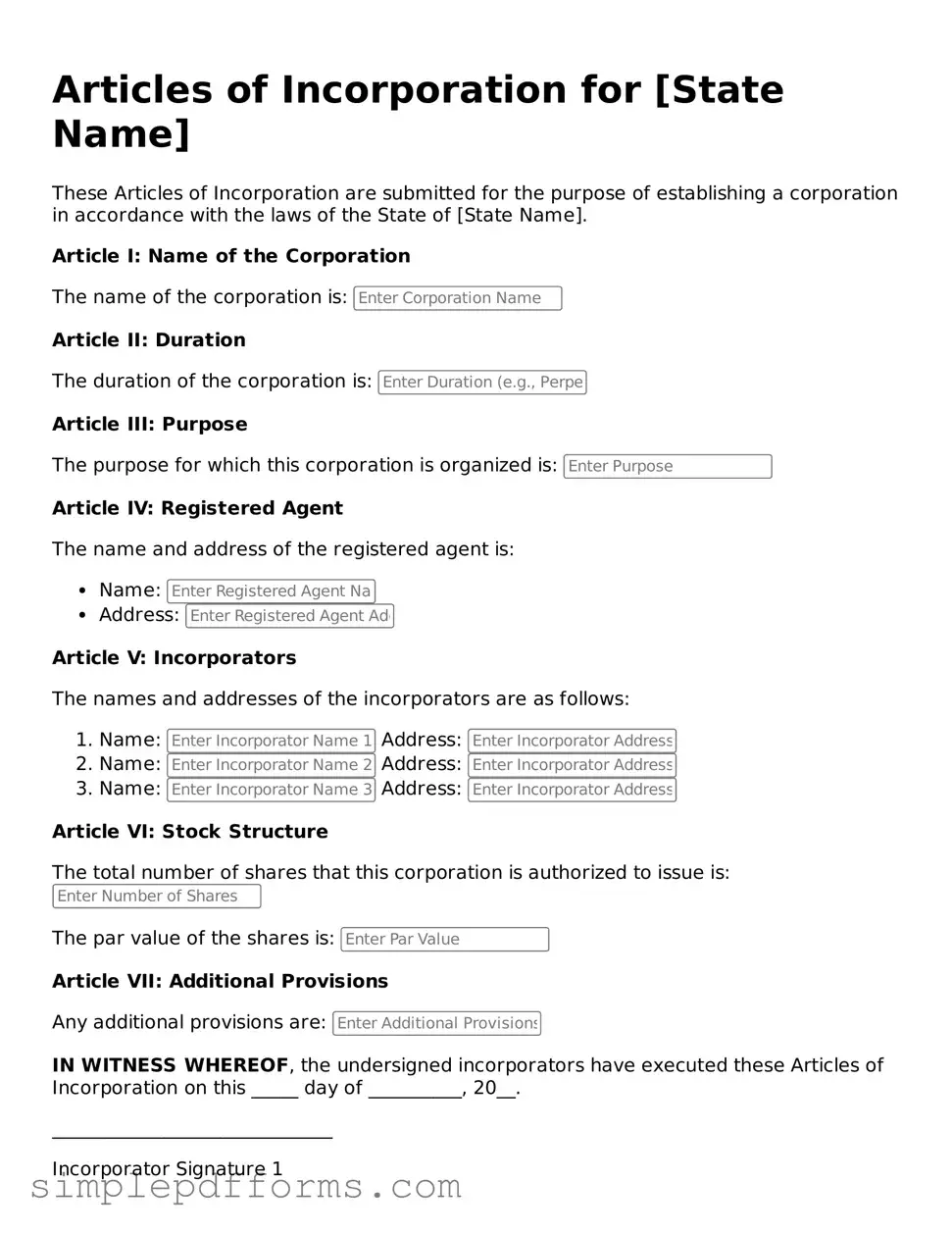Free Articles of Incorporation Form
The Articles of Incorporation form is a crucial document that establishes a corporation's existence in the eyes of the law. It outlines essential details about the business, such as its name, purpose, and structure. Completing this form is a vital step for anyone looking to create a legally recognized entity.
Open Articles of Incorporation Editor Now

Free Articles of Incorporation Form
Open Articles of Incorporation Editor Now

Open Articles of Incorporation Editor Now
or
Get Articles of Incorporation PDF Form
Your form is waiting for completion
Complete Articles of Incorporation online in minutes with ease.